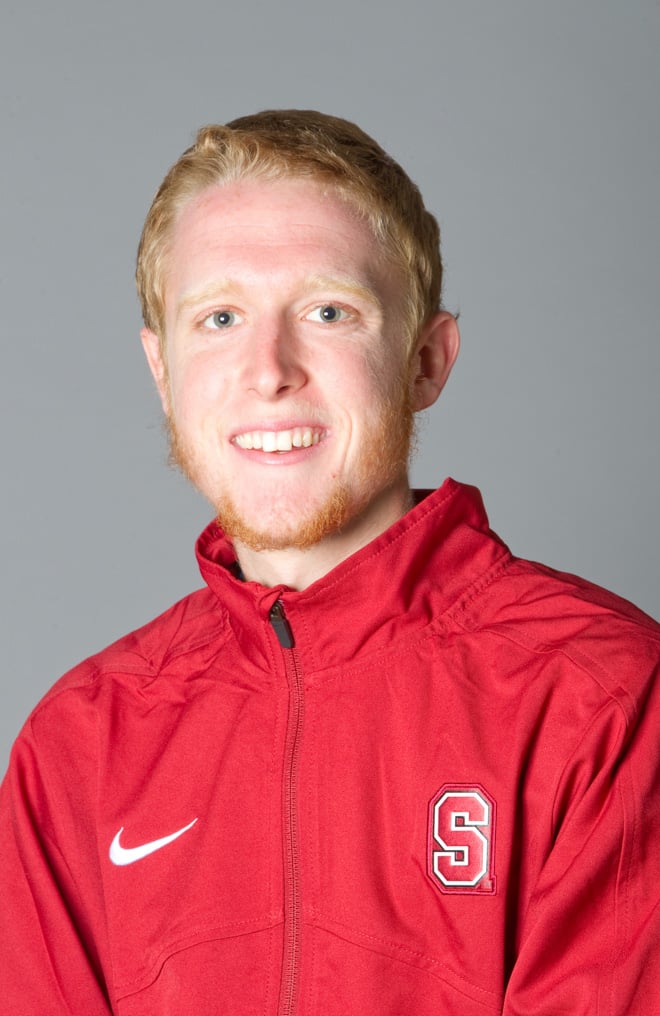“We provide student-athletes with unparalleled educational and athletic opportunities, and that should be pay enough. We don’t want to directly compensate them, and don’t feel we should have to.”
Those were, essentially, the arguments of Pac-12 COO Jamie Zaninovich and Stanford Senior Associate Athletics Director Kevin Blue at last week’s Stanford Sports Innovation Conference hosted by the Graduate School of Business.
Appearing alongside former Michigan and NFL kicker Jay Feely on the Pay for Play panel, both Zaninovich ’93, MBA ’01 and Blue ’05 stressed the value of education for college athletes. Both argued that since players are already being provided with the in-kind benefit of education, they should not be directly compensated for the value they generate for their athletic departments and institution as a whole.
Below, I respond to several points made by Zaninovich and Blue during the course of the panel, which was moderated by veteran sports lawyer Glenn Wong.
Jamie Zaninovich: “Do we try to make money on [athletics]? Absolutely. No different than any other part of a university — a hospital or any other profit center where there’s economic value in the system.”
Zaninovich just forgot one small difference: Unlike Stanford Hospital, for instance, the Stanford athletic department has chosen not to directly compensate the majority of its labor force. Doctors, nurses, physician assistants, secretaries, janitors — everyone who works in the Stanford Hospital receives direct pay for his or her services. That’s not true in Stanford Athletics, in which only administrators, coaches and other support staff are paid directly.
The vast majority of those who work in Stanford’s athletics department — the so-called “student-athletes” — receive no direct pay for their work, and are, in fact, limited in the amount of compensation they’re allowed to receive. What’s more, Stanford colludes with other educational institutions to set these compensation caps. If similar restrictions were put in place for university doctors and nurses, institutions would be rightly sued (and lose) immediately. Agreements by horizontal competitors on prices, wages and output violate U.S. antitrust laws and would never stand a chance against even the slightest level of judicial scrutiny.
Zaninovich is correct that the economic goals of hospitals and athletic departments are basically the same: Make as much money as possible. But their business models, particularly the way their employees are compensated, could not be further apart.
Kevin Blue: “Philosophically, we view student-athletes as students. And we treat them that way…”
First of all, I have a ton of respect for Kevin Blue. He’s incredibly intelligent, creative and is quickly making his way up the ladder of college athletics. But his statement above could not be further from the truth, because Stanford does not treat its athletes like the rest of the student body.
If Stanford really treated its “student-athletes” as students, then athletes would be permitted to monetize their names, images and likenesses, just as every other student on campus is allowed to do.
If Stanford really treated its “student-athletes” as students, then athletes would be permitted to accept monetary or in-kind benefits for the value of their athletic skills or on the basis of their athletics reputation.
If Stanford really treated its “student-athletes” as students, then athletes would be permitted to stay in the home of a host family during the summer and accept basic, human decency (like daily meals or sub-Bay Area market rent) from that host family.
I could go on like this indefinitely. Blue, Stanford and its athletic department may indeed view “student-athletes” as just students (which makes the term “student-athlete” irrelevant), but, by denying athletes the economic rights that the rest of the undergraduate population enjoys, they certainly don’t treat them like it.
Jamie Zaninovich: “For [athletes] that do choose [the collegiate route]… We have an obligation to support that co-curricular activity for those student-athletes to make sure they have a fair deal.”
To be sure, Zaninovich and his Pac-12 colleagues have done an excellent job at introducing national legislation that would conceivably benefit college athletes. This includes proposals that would give athletes more time off after the end of their season and “allow student-athletes to use their names, images and likenesses to promote their own non-athletic business ventures.” Although this legislation has not been passed as of yet, the relative progressiveness of the Pac-12 on the hot-button issue of athlete “welfare” is commendable and appreciated.
Even so, college players are far away from receiving the “fair deal” Zaninovich says the conference is striving for. A “fair deal” would mean athletes are given the same economic rights as their non-athlete peers. A “fair deal” would mean athletes receive an increased share of the ever-burgeoning pie their efforts help create. A “fair deal” would mean negotiating television rights contracts that don’t have football players arriving back at their campus at 4 a.m. or basketball players hitting the road in the middle of the week.
The Pac-12, more than any other conference, at least appears ready and willing to make college athletics fairer and more equitable. But it and the rest of the NCAA’s membership have a long, long way to go.
Ask Cameron Miller what his talking points will be when he is speaking on Pay for Play panels across the nation in 5 years at cmiller6 ‘at’ stanford.edu.
